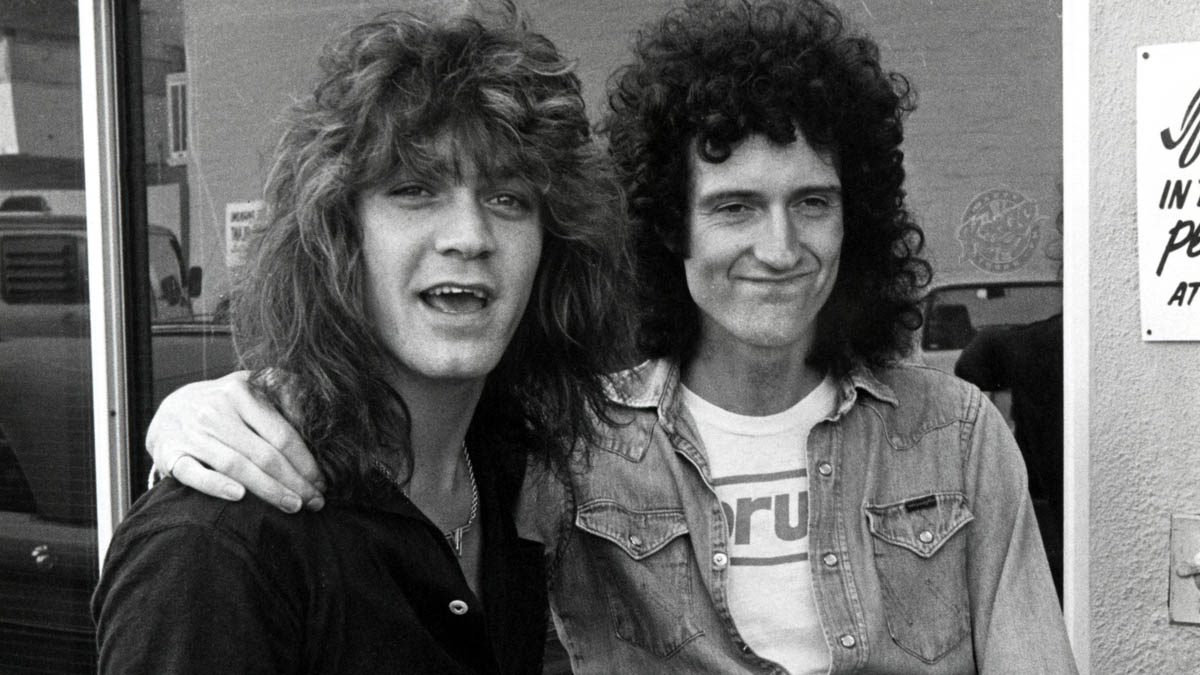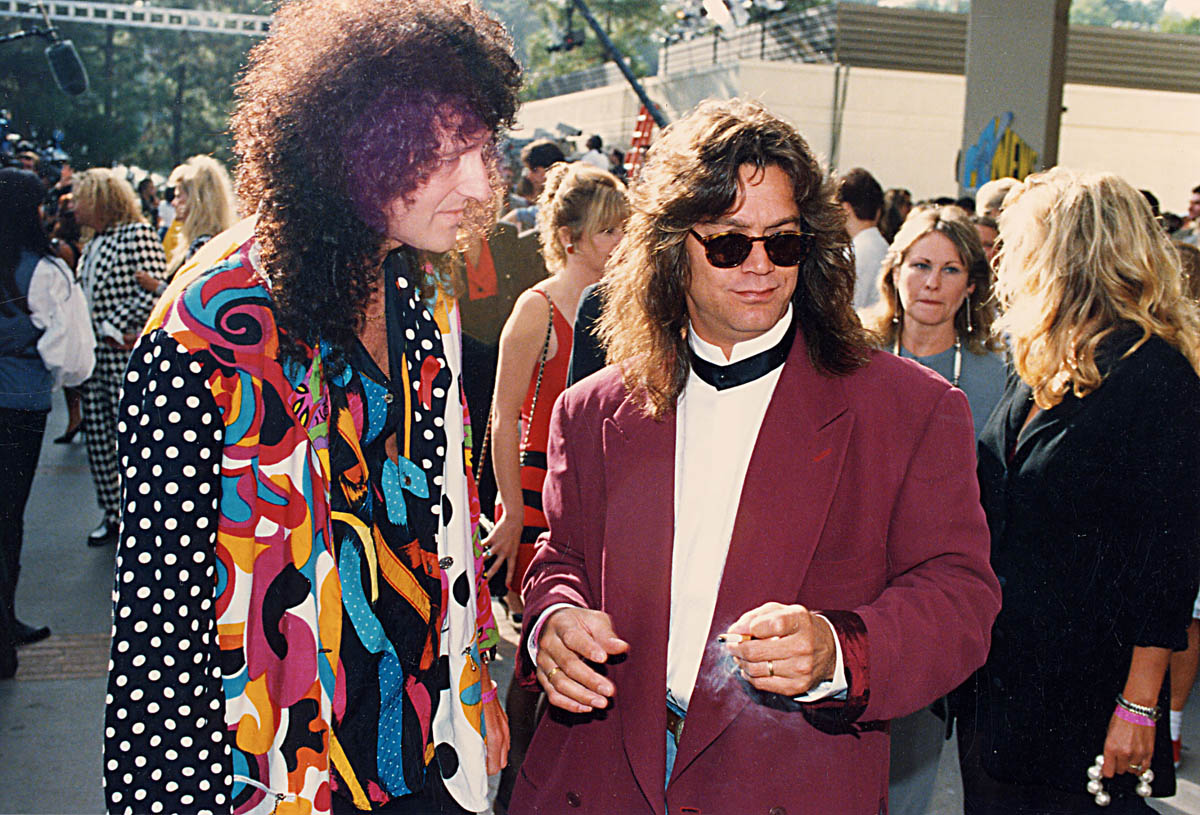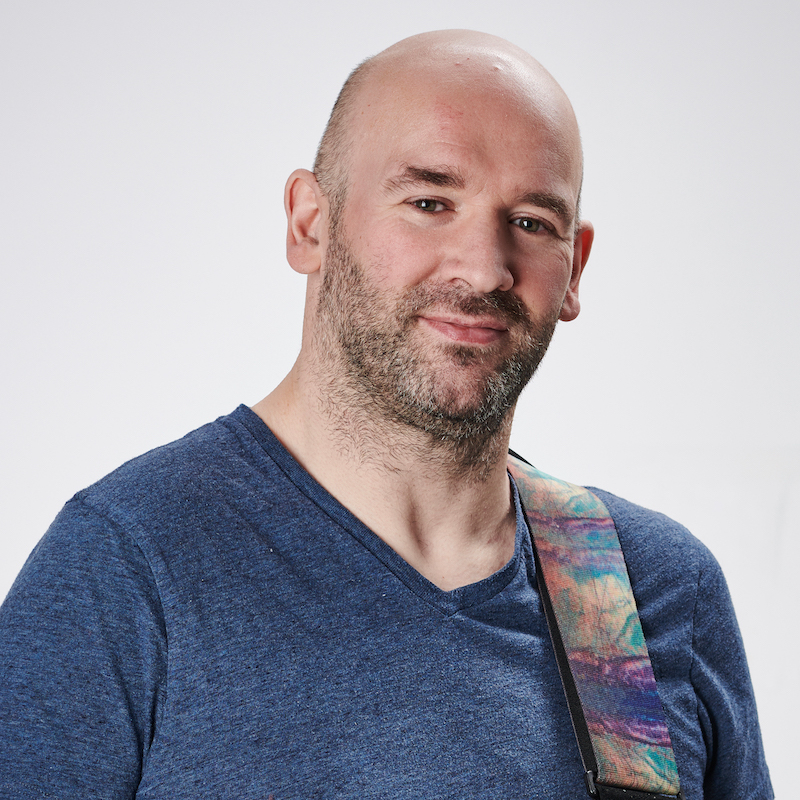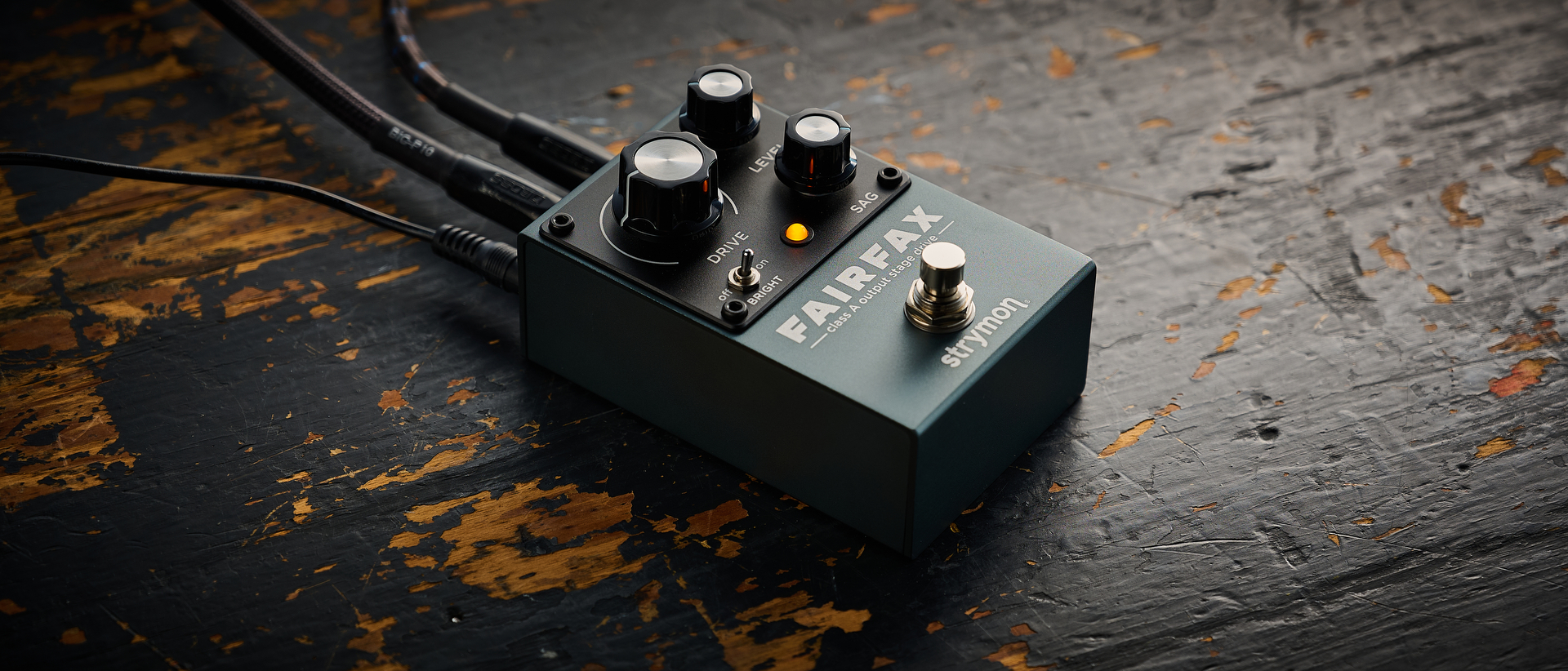Brian May pays tribute to his friend Eddie Van Halen: “I miss his presence in the world“
“There was no one who could match him, no one who could come close. There will never be another one of him“

All the latest guitar news, interviews, lessons, reviews, deals and more, direct to your inbox!
You are now subscribed
Your newsletter sign-up was successful
“He was the greatest,” Brian May says. “There was no one who could match him, no one who could come close. There will never be another one of him.” It is just a few days after the death of Eddie Van Halen that Brian is speaking to Total Guitar, and as he admits: “I haven’t really processed it at all. When I think about it, I get this kind of physical shock. It’s punched a big hole in my heart.”
The pair had known each other a long time, first meeting in the late '70s, when Brian was already a major star with Queen, and Eddie was the new kid on the block, his explosive displays on the first Van Halen album marking him as the most revolutionary figure in guitar playing since Hendrix.
I sounded like me on his guitar and he sounded like him on my guitar!
The two men had much in common, not least their self-built guitars – Brian’s ‘Red Special’ and Eddie’s ‘Frankenstein’. And in 1983, their close friendship resulted in them teaming up for a remarkable one-off venture – Star Fleet Project, a three-track mini-album credited to Brian May & Friends.
As Brian says now: “A couple of days after I heard the news about Eddie, I went back to Star Fleet. I started revisiting all the feelings I had when we were in the studio doing that, and it sort of healed my soul a bit. I thought, ‘Yeah, this is what I should be doing at this time.’”
He also explains that Star Fleet had been on his mind only a week before his friend passed away. “I was looking at reissuing all my solo albums, and Star Fleet obviously is one of them. At some point it would be lovely to revisit it in depth, but at the moment I’m not. It doesn’t feel right now.
“To be honest, I’m confused about what is the best thing to do. I think it needs a little time for the dust to settle. But talking with you about it in Total Guitar, I think, is okay...”
Let’s start with your first encounter with Eddie. What are your memories of that?
All the latest guitar news, interviews, lessons, reviews, deals and more, direct to your inbox!
“I think of him as a boy back then. He was quite a bit younger than me. It was backstage in Munich when Van Halen were supporting Black Sabbath. I knew a little bit about Van Halen and luckily I got there to see them, because I was there to see Tony [Iommi, Sabbath guitarist], and usually you’re late to a show if you’re just going to see your mate.
“But I got there in time to see Van Halen and I was utterly blown away by Eddie. I just thought: I’ve never seen anything like this in my life. It was almost too much to take in. I remember thinking: I don’t want to believe this (laughs). It was similar to watching Jimi Hendrix for the first time.“
In the years that followed you became good friends. So how did Star Fleet Project come about? Was it always conceived as a vehicle for you and Eddie?
“It was not consciously conceived. Or not premeditated. I was living in Los Angeles at the time. Queen had taken a break – we’d sort of had enough of each other for a while. And for some reason I always felt like a different person in LA. I’m naturally quite shy and retiring, but in LA I feel I can call people. And one morning I thought, why don’t I call Eddie Van Halen? Maybe we could get together.
“So I called and Eddie said, ‘What do you want to do?’ And I said, ‘Well, strangely enough, I have an idea in my head...’ Because my little boy had been watching this science fiction series and I always thought that the theme tune for it would be a great vehicle for all-out guitar playing. And Eddie said, ‘I’m up for it!’ So that was the beginning. I said, ‘I’ll call a few people and we’ll get in there...’“
And then?
“The next call I made was to Alan Gratzer, the drummer from REO Speedwagon, who was my neighbour in LA. I said I’d talked to Ed and wouldn’t it be nice if we all got together? Alan was very enthusiastic. He said, ‘It’ll feel like you’re cheating on your wife!’“
One morning I thought, why don’t I call Eddie Van Halen? Maybe we could get together
“I then called Phil Chen, who was Rod Stewart’s bass player for a long time, and Fred Mandel, who’d been playing keyboards with Queen. And then I booked a studio, The Record Plant, for two days.“
So you had the band ready and the studio booked, but how much material did you have to work with?
“I’d made a little acoustic demo of the track Star Fleet, which I sent to everyone, and then Ed and Phil came to my house to work on it. I’d done this whole arrangement that was a bit complex. In fact I just listened to it because I knew I was going to be talking to you, and it’s really complex! I don’t know what was in my head, really.
“But the idea was to go through a lot of changes and then arrive at a big all-out soloing section, and obviously I wanted Ed to solo. I wanted to set him up on a platform and see what he would do. So we ran through it a couple of times and Eddie said, ‘Yeah, we can do that.’ And then we discussed what else we could do. We said, we could be spontaneous – let’s jam, let’s play blues. And I also had this other track, an original song of mine called Let Me Out, which they liked.“
There was no pressure, but boy, was there adrenaline! It was just so exhilarating, like setting off down a big ski slope at a hundred miles an hour
Once you were in the studio, what was the vibe like?
“We all sat around with big smiles on our faces, going, ‘Yay, this is fun!’ I think we’d all got to the point where we’d worked hard in the studio with our respective bands and it had almost become a job, you know?
“Of course we all loved music, but there are moments when you feel pressure in the studio, the album has to be made, deadlines and whatever, and sometimes it gets tense. But this was different – we’re all friends, and whatever happens here is a bonus. So it was full of joy.“
And you recorded the whole thing in two days?
“Well, really it was one day to do the session and the second day to clean it up and sort things out. So it was basically an afternoon. And there was no pressure, but boy, was there adrenaline! It was just so exhilarating, like setting off down a big ski slope at a hundred miles an hour. It was an amazing feeling. I looked around and just smiled and smiled.“
With you and Eddie playing self-built guitars, did you compare notes?
“Yeah, we did. We talked about what he called ‘the brown sound’. He said he’d been very influenced by the way my guitar sounded, the breadth of it and the way it spoke. And he wanted that. He said, ‘I wanted that brown sound.’ And it’s a question of where you put the pickup, at what point under the strings – it’s technical talk.
“Where do you put the pickup? He said none of the guitars he’d used had it in quite the right place, so he moved his pickup. His guitar looks very individual, but the thing that really made it so individual in sound is because he tuned where that pickup was – to like a hundredth of an inch – to get the right harmonics to make the brown sound. And he had to have the right amp, of course. So we talked a little bit about that. But to be honest, it was more about, ‘What shall we play?’“
He played my guitar and I played his guitar. And I sounded like me on his guitar and he sounded like him on my guitar
Did you swap guitars for fun?
“Yes, he played my guitar and I played his guitar. And I sounded like me on his guitar and he sounded like him on my guitar [laughs], which reassured us that it’s basically all in the fingers at the end of the day. No matter what guitar Eddie picked up, it sounded like him. And I saw him pick up Phil Chen’s bass, and he sounded like Eddie Van Halen on Phil Chen’s bass! So, yes, it’s in the fingers.“
How did the Frankenstein feel?
“The tremolo – did it feel alien and unusual to you? It didn’t feel familiar, no, because his tremolo is entirely different to mine, it’s loose and flops about. Mine is on the verge of being immobile, and wherever I put it, it stays. So that’s very different. I’m sure I could have got used to it after a while, but we just got on with playing basically.“
Do you remember what rig Eddie was using?
“I just remember he had a big 4x12 Marshall cabinet. But I’m not good on gear. That’s what I think I saw. And I didn’t have much stuff in LA. I think I had a rented AC30 and a treble booster and my guitar. That was it. It was very basic, all thrown together in a few days.“
The song Star Fleet has some harmony guitars, so there must have been overdubs. But was this mostly a live session?
“It was a mixture. Most of it was live, but the harmony guitars were overdubbed, and the vocals were overdubbed. I may have done a guide vocal but I definitely sang it afterwards to get it right, because in the moment it was all about the playing. But the stuff you hear Ed doing – the big solo which had been set up – that’s an overdub, because I wanted Ed to have a number of goes at it.
“He’d done the Beat It solo and I wanted him to have that kind of feeling about it. I think he did three different ones, all of which were utterly brilliant. Our jaws all dropped. And I remember, at the very end of the soloing section there’s a little harmony run-up so we overdubbed that together live, but as an overdub.“
I was awestruck by his playing. He’s much younger than me, but I couldn’t believe what his fingers could do
“And that was one of the great moments of my life, I’ve got to say – because we did it once and we got it right. I mean, I’m not big on chromatic runs or whatever, I’m not a great technician, but we just did it – one, two, three, go! That’s a tiny little moment but a moment of great joy, playing with this guy. I was awestruck by his playing. He’s much younger than me, but I couldn’t believe what his fingers could do.“
It sounds at times as if you’re swapping techniques together, like you’re paying tribute to each other as you play.
“I think there was a bit of that. Ed sort of embarrassed me by saying I was a huge influence on him, and only recently I discovered a recording on the internet of Van Halen playing Now I’m Here [a version of the classic Queen song, demoed by Van Halen in 1975].
“There’s a comment about Ed – that when he solos, he sounds like Eric Clapton. Well, maybe there is a Clapton influence on Ed. I know because he told me. But if you listen to what happens [on the VH version of Now I’m Here] when he goes into the solo section, it’s already Edward Van Halen, there’s no fucking doubt about it. That’s the place to hear how Edward was developing as a guitar player, and it’s already awesome.“
Now I’m Here is my favourite Queen song.
“I think it was Ed’s favourite Queen song, too. But to answer your question – yes, I think we both played a little differently because there was the other guy in the room. And certainly on the blues track, Blues Breaker, he doesn’t do any tapping whatsoever.
“That’s a rarity, and he said to me, ‘I’m glad we’re doing this, because you’re making me go back to my roots. I love playing blues, and I love not doing the Eddie Van Halen stuff, I love not tapping and doing all the fireworks. It’s great to get back to just playing from the soul.’
“So if you listen to that, he does sound much more in the Clapton mould, and we both do. You know, Clapton is a massive hero of mine, as are the people who influenced Clapton. There’s a whole line of influence going back to the original blues players.“
And how did you play differently?
“There’s no way I would try to play like Edward, because I can’t (laughs). Nobody can. So partly I wanted to play in a sympathetic way to him, to supply the great rhythms that he could play to. I wanted to be the perfect rhythm guitarist, and I grew up as a rhythm guitarist, so that’s natural to me. But when we were trading solos, yes, we were feeding off each other.
“And we’d never done it before. We’d never played together before, and yet the chemistry is there. In Blues Breaker you feel, yeah, we’re not just noodling, we are listening to each other and playing off each other, as is the whole band. Alan was really in tune with it, Phil was like a rock, and Fred Mandel was doing lovely sympathetic things on the keys. It really was a session that gelled incredibly well. I don’t think I’ve ever in my life had a session like that.“
I wanted to play in a sympathetic way to him, to supply the great rhythms that he could play to. I wanted to be the perfect rhythm guitarist
Before the session, did you take time to hone your blues chops with that track in mind, or were you looking purely for that feeling of spontaneity?
“The latter. It was as spontaneous as anything could be. We knew the Star Fleet song and, well, I think it shows that we didn’t know Let Me Out [Laughs], but I was able to mix it so it sounds like we knew roughly what we were doing. So if and when you reissue Star Fleet Project, would you remix it? I think we would.
“Things have changed, and certainly my feelings about drum sounds have changed. So yes, we have been talking about doing a new mix for it. We wouldn’t mess with any of the playing, obviously. But we’d try to get the sounds a little more in tune with what can be done in 2020.“

What studio techniques would you employ for this?
“Well, that would be telling! To be honest, it’s a question of not doing certain things. There’s an awful lot of treatment on that snare, which seemed cool at the time, but I wouldn’t do that now. It makes the drums sound detached from everything else. My ear is better now than it was in those days.“
What did you learn from this project?
“I learned about confidence. I learned that I could make a couple of phone calls, organise a session and just go in and play. I thought until that point that I only existed, musically, as a part of Queen. So that was me seeing a door and opening it. I think I became a more interesting performer because of it, maybe a more interesting person as well. It was a good boost for me to think: ‘I don’t have to just be a member of a band’.“
Do you feel that you learned anything from Eddie during this experience?
“Not really. I don’t think there was time to do that. Maybe unconsciously, but I wasn’t aware of that happening. We didn’t get into technicalities. We just let it happen by ear, and we were all instinctive players. There were no charts, no hard analysis going on – it’s just, ‘Here’s a skeleton, a template, let’s just see what we do when we roll tape’ – and it was tape in those days.“
I wonder whether Eddie may have learned something from you and the experience of Star Fleet Project – because Van Halen’s following album, 1984, was a bit of a left turn, with Eddie experimenting with synthesizers.
“I don’t know. I think Edward liked the melodic side of what I did within Queen. I can remember having discussions about that. And he wasn’t a person to do lots of guitar harmonies like I do, but he liked the colourful side of our arrangements. I just don’t know whether that was an influence or not.“
We all know he was a technical prodigy, but what he did, he did with such lightness and humour
The last time you spoke to TG, earlier this year, you said you would have loved to work with Eddie again. Did you have anything specific mind?
“No. I didn’t get as far as that. Actually, I’d forgotten I said that to you. It’s obviously been in my mind, but I never got down to details.“
Had you lost contact with him over the years?
“Relationships in our business tend to be a bit patchy. I was quite close to him at one time, and then for a while not. I have a real regret that I didn’t stay close in the last few years. So many times I thought, ‘I should call him.’“
How will you remember Eddie?
“He was always smiling. We all know he was a technical prodigy, but what he did, he did with such lightness and humour. He didn’t need to take it seriously. Eddie was always generous, always fun. I miss his energy. I’m thankful I had the chance to have moments with him, but I feel so sad that he’s not around. All I can say is I miss him. I miss his presence in the world.“
Chris was Editor of Total Guitar magazine from 2020 until its closure in 2024, when he became Lesson Editor for Guitar World, MusicRadar and Guitar Player. Prior to taking over as Editor, he helmed Total Guitar's world-class tab and tuition section for 12 years, helping thousands of guitarists learn how to play the instrument. A former guitar teacher, Chris trained at the Academy of Contemporary Music (ACM) in Guildford, UK, and held a degree in Philosophy & Popular Music. During his career, Chris interviewed guitar legends including Brian May and Jimmy Page, while championing new artists such as Yungblud and Nova Twins. Chris was diagnosed with Stage 4 cancer in April 2024 and died in May 2025.

